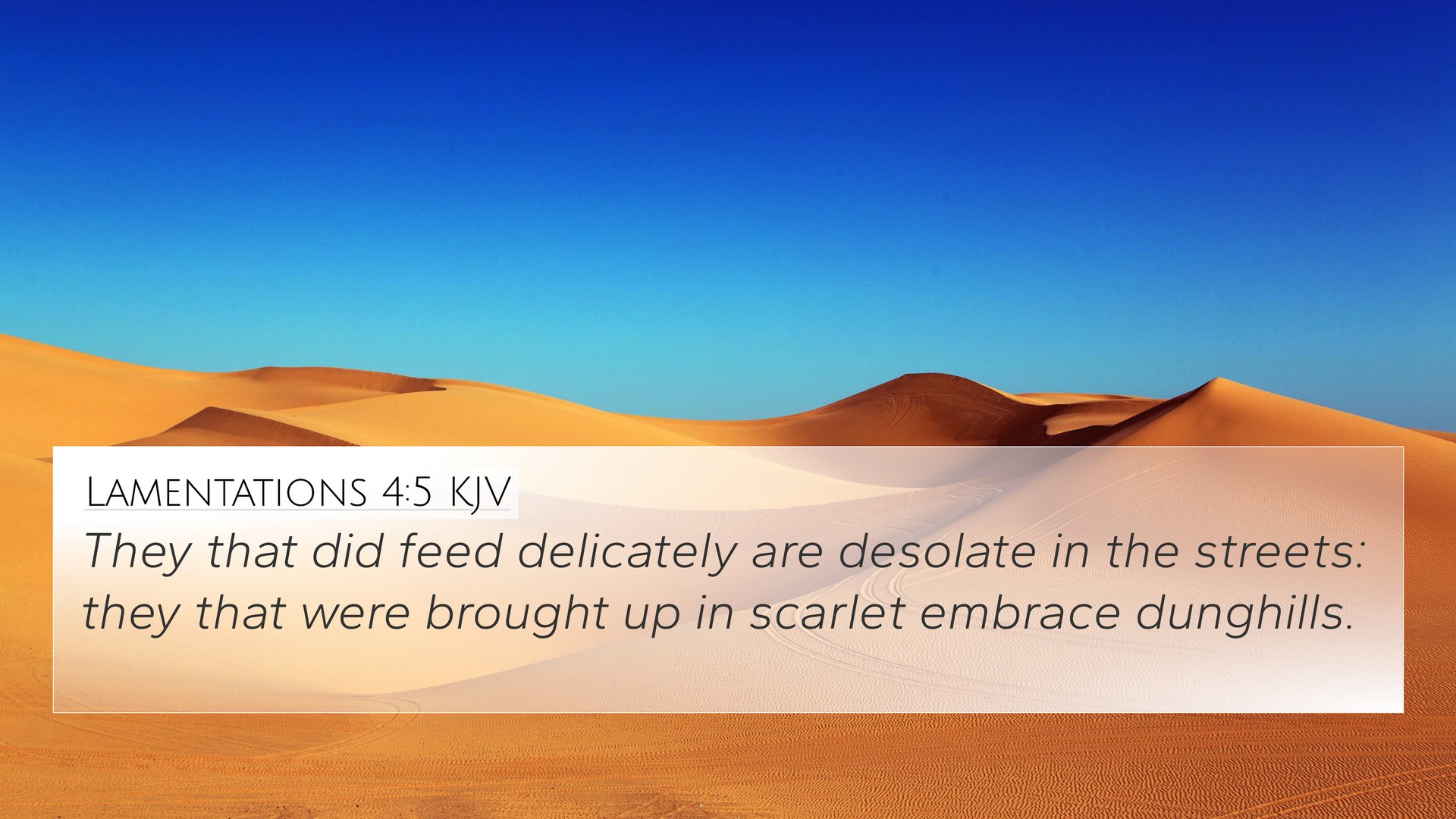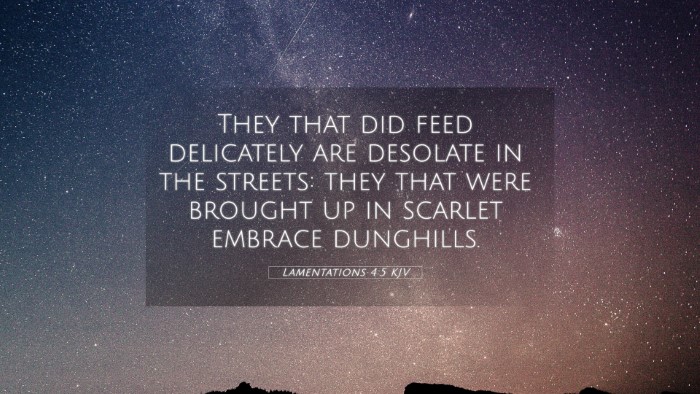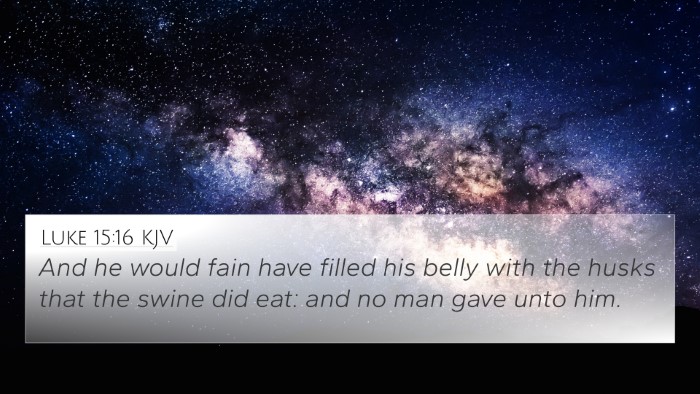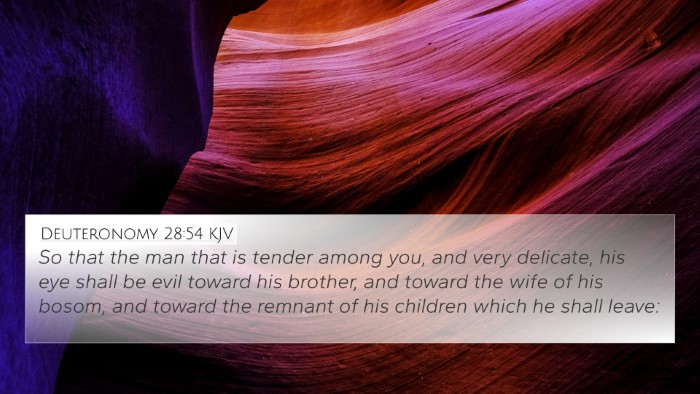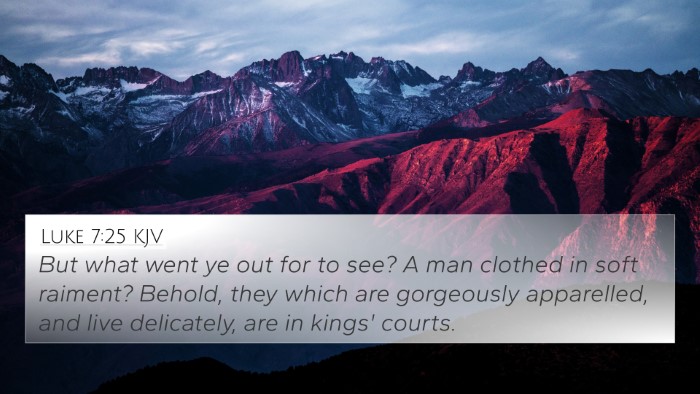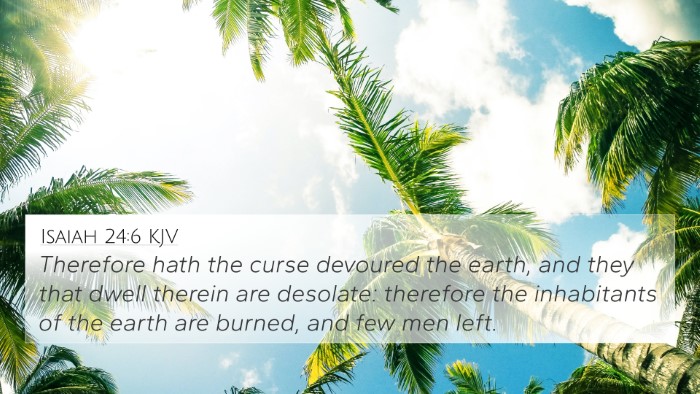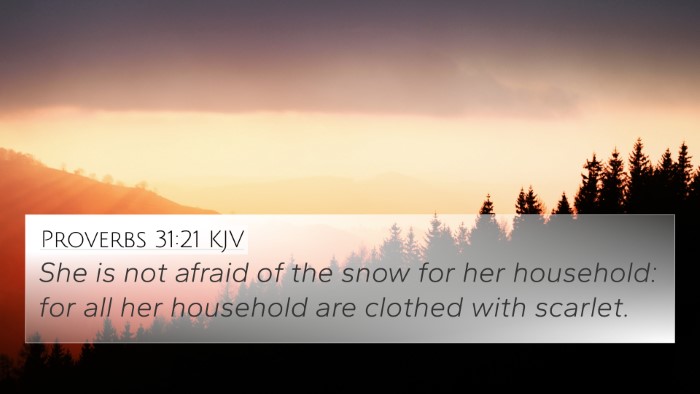Lamentations 4:5 - Summary and Explanation
Lamentations 4:5 states, "They that did feed delicately are desolate in the streets: they that were brought up in scarlet embrace dunghills." This verse powerfully illustrates the drastic changes in the societal hierarchy and well-being during the Babylonian siege of Jerusalem. The commentary from various biblical scholars sheds light on the meaning of this verse in several aspects.
Contextual Understanding
This verse occurs within a chapter that details the devastation brought upon Jerusalem due to its sins and resultant judgment. The imagery used reflects the stark contrast between past prosperity and present desolation.
Insights from Public Domain Commentaries
Matthew Henry
Matthew Henry notes the dramatic reversal of fortune experienced by those who once lived luxuriously. He explains that the rich, who were accustomed to fine food and comforts, find themselves reduced to begging for scraps in the streets. Henry emphasizes the theme of divine justice at work, as those who once indulged are now suffering the consequences of their actions.
Albert Barnes
Albert Barnes points out that this verse not only reflects physical deprivation but signifies a spiritual crisis as well. The once-proud inhabitants of Jerusalem, represented by the elite classes, have been brought low. Barnes mentions that this imagery serves as a warning to all who presume upon their status and wealth without recognizing their dependence on God.
Adam Clarke
Adam Clarke elaborates on the cultural implications of food and status in ancient Israelite society. He elucidates how food was associated with honor and respect. The deterioration of the rich’s condition serves as a metaphor for the broader spiritual decay within Israel. Clarke's insights highlight the connection between physical condition and moral standing before God.
Inter-Biblical Connections and Cross-References
This verse has several cross-references that illustrate its thematic connections within the Bible:
- Isaiah 3:1-3 - Highlights God’s withdrawal of support from Jerusalem's leaders.
- Jeremiah 14:3 - Discusses the scarcity of food and the plight of the wealthy.
- Lamentations 2:10 - Describes the sorrow of the young men and women who suffer amidst the destruction.
- Ezekiel 7:18-19 - Illustrates panic and desperation in times of judgment.
- Proverbs 29:3 - Connects to the idea that a nation's moral state influences its welfare.
- Luke 16:19-26 - The parable of the rich man and Lazarus; a parallel of riches and suffering.
- James 1:10-11 - Comments on the transient nature of wealth.
Thematic and Interpretative Analysis
This verse exemplifies the broader themes of judgment, societal collapse, and the reversal of fortunes that resonate throughout Scripture. It serves as a reminder of the following:
- The fleeting nature of earthly wealth and status.
- The moral and ethical decay that can lead to divine judgment.
- The possible restoration after repentant acknowledgment of sin.
Lessons for Modern Readers
The message of Lamentations 4:5 remains relevant today. It urges readers to examine their lives in light of their spiritual status. The luxurious lifestyles without accountability lead to dire consequences, reflecting God's principle of justice.
Conclusion
As we contemplate Lamentations 4:5, we are reminded of the connections between history, divinely ordained justice, and societal behavior, relevant to our understanding of scripture. This verse, along with its connected scriptures, showcases the depth of God's character and His dealings with humanity.
Further Study and Reflection
For those interested in deeper exploration, consider looking into:
- Tools for Bible cross-referencing to identify similar themes across the text.
- Bible concordance for a detailed study of the original Hebrew terms used.
- Bible cross-reference guide for a systematic approach in linking scriptures.
- Cross-reference Bible study methodologies to enrich personal or communal study.
